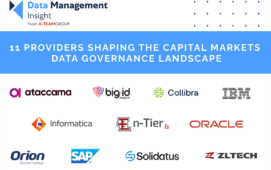
Informatica, a provider of cloud data management solutions, is planning a second half 2023 release of CLAIRE GPT, a generative AI-powered data management platform that will become part of its Intelligent Data Management Cloud (IDMC).
The company describes CLAIRE GPT, which is based on its enterprise-scale AI engine, as the next generation of the IDMC platform, and says it will add a natural language-based interface to IDMC, simplifying and accelerating how enterprises consume, process, manage, and analyse data. It is also expected to allow enterprises to optimise data management and drive greater productivity, foster deeper data democratisation and self-service, and integrate in-context data experience at the point of consumption. CLAIRE GPT will be available as a native IDMC service in the second half of this year.
“We are expanding our end-to-end IDMC platform with transformative new capabilities to enable our customers to drive automation, comply with critical regulations, and move to the cloud quicker, all while enabling higher levels of security,” says Amit Walia, CEO at Informatica. “With CLAIRE GPT, we anticipate experienced data users, such as engineers, analysts, and scientists, will realise up to an 80 percent reduction in time spent on key data management tasks.”
In conjunction with CLAIRE GPT, Informatica will extend its CLAIRE copilot capabilities to automate more data management tasks and processes, and provide greater observability across data. Previously, with CLAIRE’s support, users could automate functions such as data governance, data quality, generation of data pipelines, master data management, the discovery of redundant datasets, and customer data organisation. New AI copilot capabilities extend this functionality to include generated classifications with no manual inputs, inferred data lineage, multi-column completeness analysis, and automapping.
Subscribe to our newsletter



